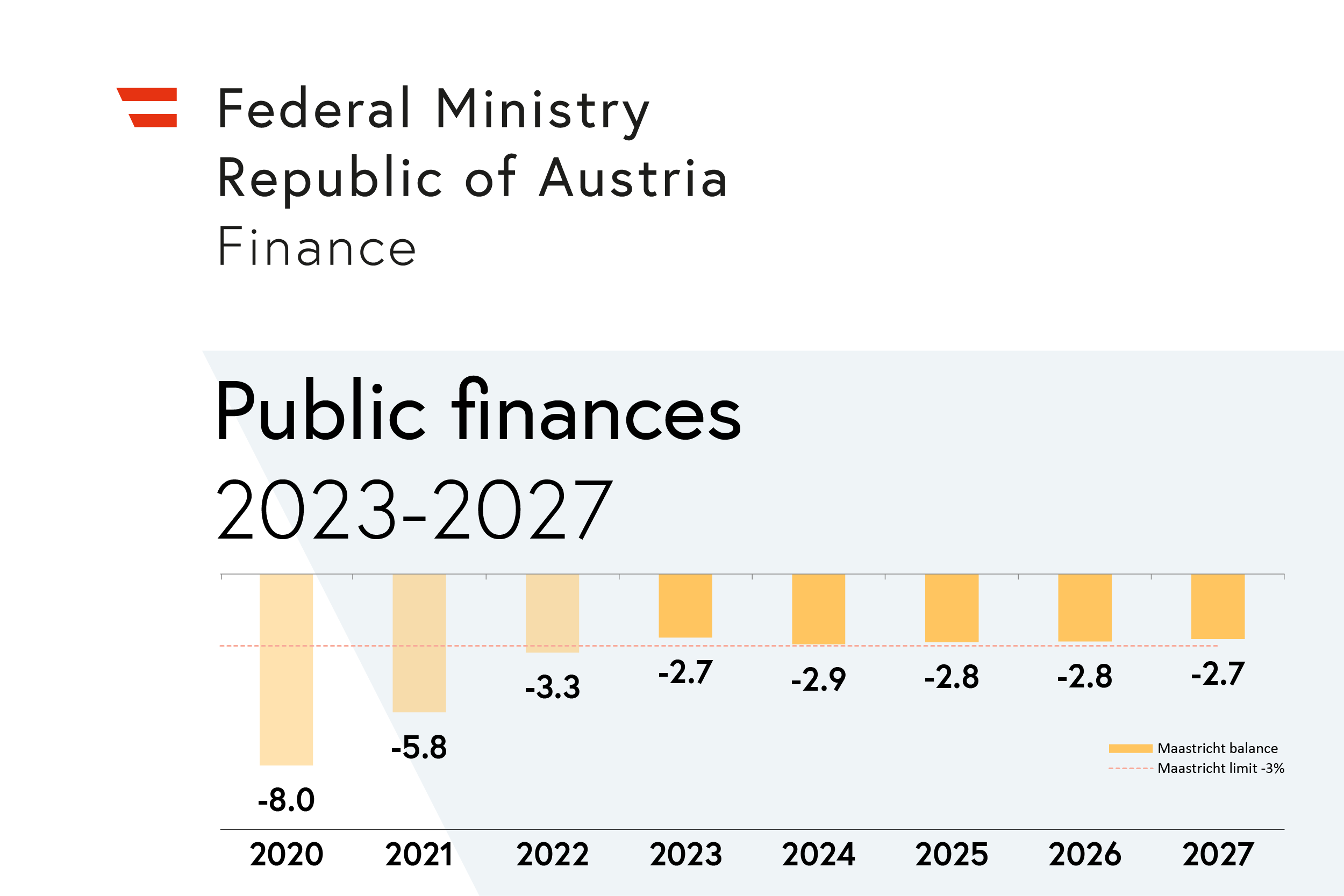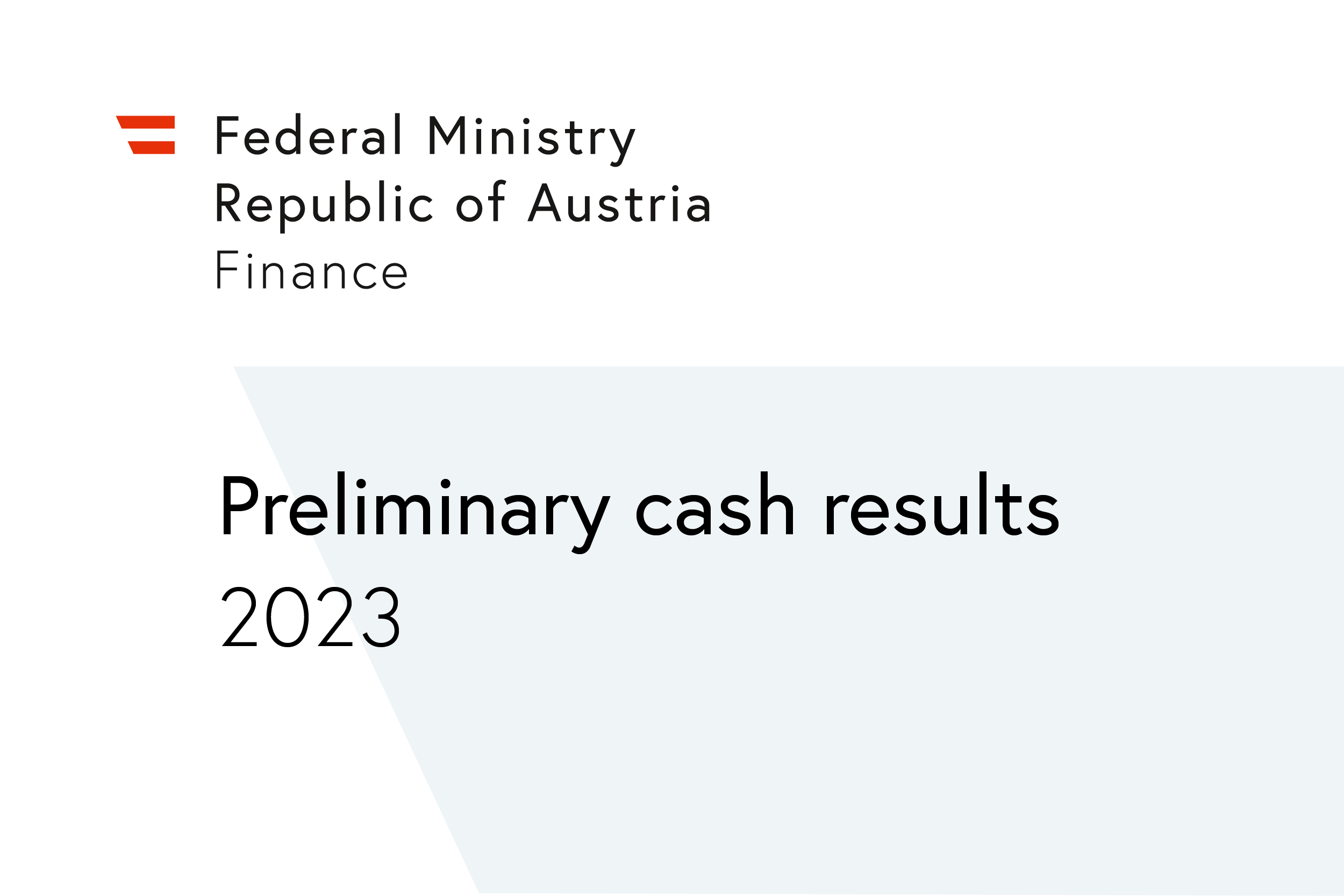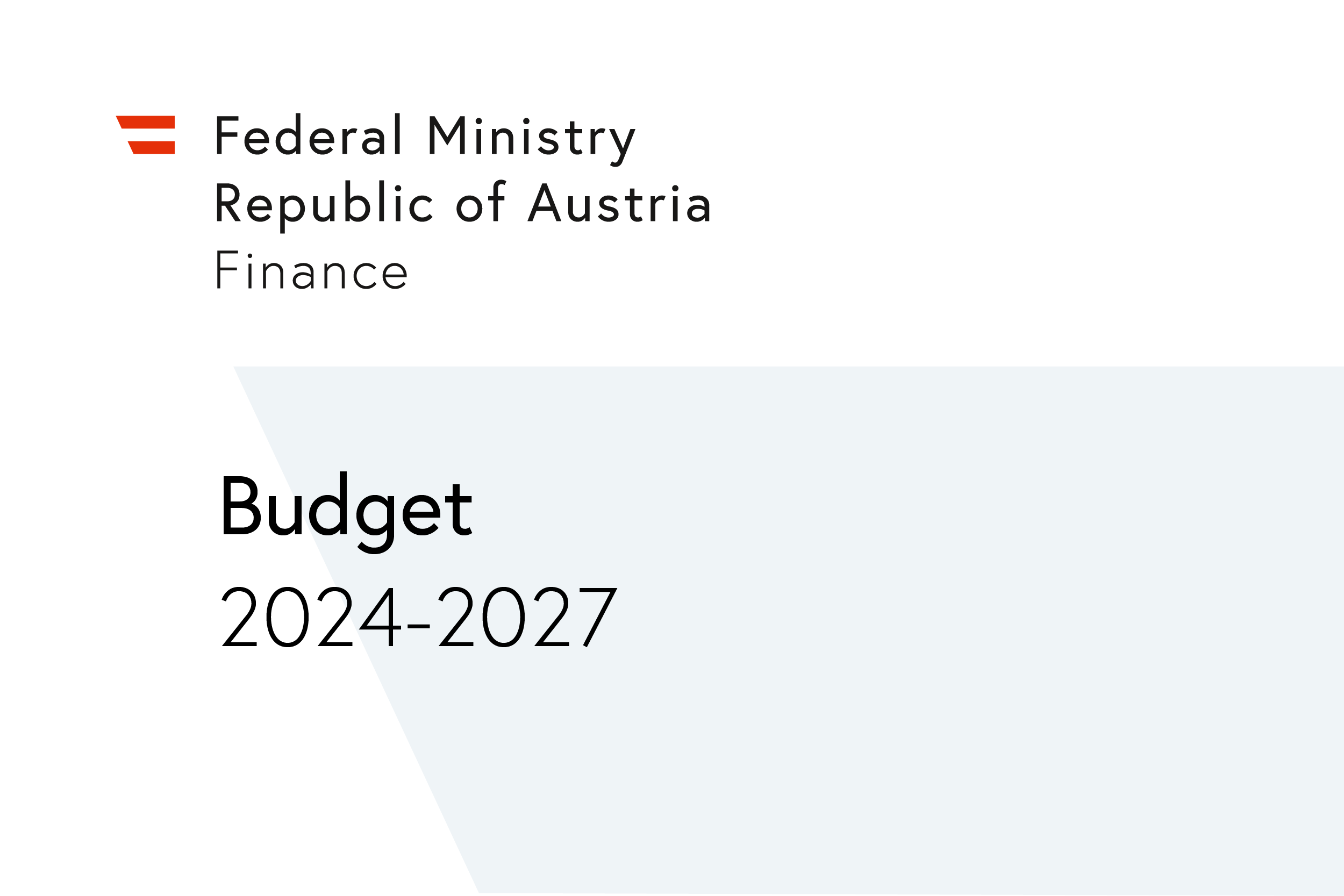Budget.gv.at
2025-05-13 Budget draft 2025 and 2026 has been tabled
With the Budget 2025/2026 and the Medium-Term Expedntirue Framework until 2029,the Federal Government is starting the consolidation of public finances and achieving the budgetary turnaround in a difficult environment.
At the general government level, € 6.4 billion will be consolidated in 2025 and € 8.7 billion in 2026. This will reduce the Maastricht deficit to 4.5% of GDP in 2025 and 4.2% in 2026. Without consolidation, the deficit would have risen to 5.8% of GDP in 2025 and 5.9% of GDP in 2026. In 2028, the Maastricht deficit will be reduced to 2.98% of GDP, just below 3.0% of GDP.
The consolidation measure are sufficient to stabilise the increase in the debt ratio. A debt ratio of 84.7% of GDP is forecast for 2025 and 86.2% in 2026. By 2028, there will only be a slight increase to 87.0%. The debt ratio will then fall again for the first time in 2029.

2024-04-30 - Economic Developments and Public Finances 2023-2027
According to the notification by Statistics Austria in March 2024, the general government Maastricht balance for 2023 amounts to Euro -12.7 bn or -2.7% of GDP. Compared to 2022, this is an improvement of Euro 2.0 bn or 0.6 percentage points. This means that the Maastricht deficit limit of 3.0% of GDP was met in 2023 for the first time since 2019 and the COVID-19 and energy crisis.
This budget policy course will also be maintained in the coming years. A Maastricht balance of Euro 14.6 bn or -2.9% of GDP for 2024 is forecast by the MoF, followed by a slight decline to -2.8% of GDP in 2025 and 2026 and to -2.7% of GDP in 2027.
The Maastricht debt level amounted to Euro 371.1 bn at the end of 2023, while the debt ratio in relation to GDP was 77.8% of GDP (-0.6 percentage points compared to 2022). A further slight decline in the debt ratio to 77.5% of GDP is forecast for 2024, followed by an almost constant debt ratio until the end of the forecast period in 2027.

2024-03-28 - Preliminary cash results 2023
Report pursuant to § 47 (2) and (2a) Federal Budget Act 2013
The provisional net financing balance of the federal government amounted to € -8.0 bn (deficit) in 2023 and is therefore € 9.1 bn better than planned in the federal budget for 2023.
The lower expenditure compared to the budget of € 6.0 bn (-5.2%) results from lower expenditure related to the energy crisis (€ -0.7 bn), for COVID-19 crisis management (€ -0.1 bn), underruns of the budget 2023 due to the economic situation (€ -0.2 bn), lower interest payments (€ -1.0 bn) and other lower budget requirements (€ -4.0 bn, e.g. investment premium, green transition, Export Guarantee Act, federal staff in the education sector).
The higher revenue of € 3.1 bn (+3.2%) is mainly due to the economic situation (€ +2.3 bn, of which gross taxes € +1.1 bn), but is also attributable to higher cash inflows from dividends and the liquidation of immigon AG, for example.

2023-11-23 - Budget 2024-2027
The 2024-2027 budget clearly shows the medium to long-term challenges facing our society: demographic change (pensions, health and care), security and dealing with climate change. Financing costs will double from 0.9% to 2.0% of GDP between 2022 and 2027.
These challenges, the investments in the future of Austria as a business location and the relief measures are therefore also reflected in the 2024 to 2027 budget path.
The federal deficit amounts to €20.9 billion in 2024 and will fall to €16.9 billion by 2027. Despite the budgetary burdens, the general government Maastricht deficit will remain below 3.0% of GDP from 2024 to 2027. The public debt ratio will remain stable or decline to below 77% of GDP by the end of the planning period in 2027